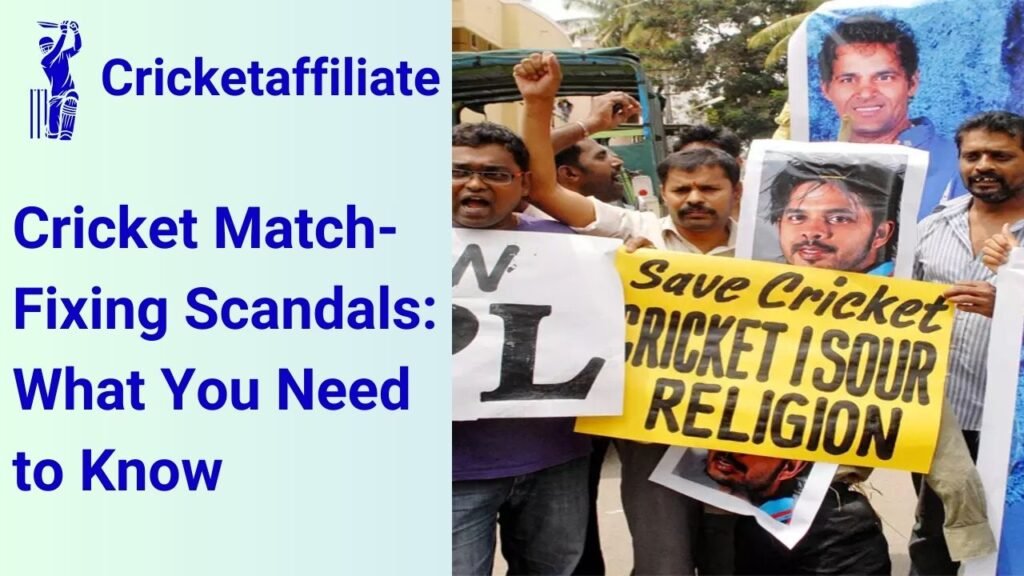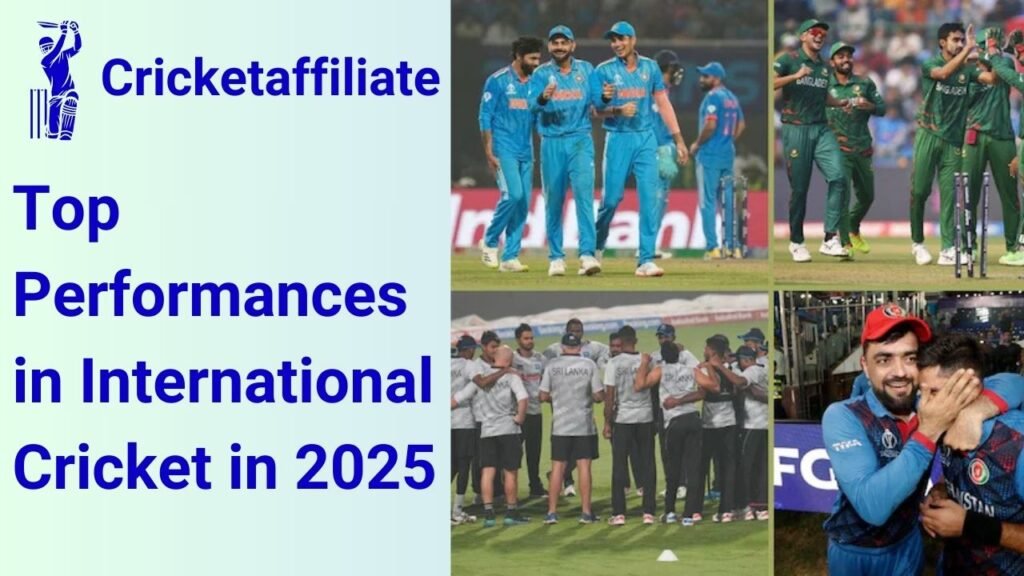Cricket, often celebrated as a gentleman’s game, has faced its share of dark moments. Among these, match-fixing scandals stand out as a stain on its rich history. These scandals not only damage the sport’s reputation but also break the trust of millions of fans worldwide. For cricket enthusiasts who enjoy keeping up with tips, gear, and news, understanding the impact of match-fixing on the sport is essential. This article dives into cricket match-fixing scandals, their history, the mechanisms behind them, and how they’ve shaped modern cricket regulations.
What is Match-Fixing in Cricket?
Match-fixing refers to manipulating the outcome or specific events in a cricket match to achieve a pre-determined result, often for financial gain. Fixing can range from influencing entire matches to smaller actions like the number of runs scored in a particular over (spot-fixing).
Match-fixing scandals involve players, bookies, and even officials who conspire to deceive fans and undermine the competitive nature of the sport. These incidents typically revolve around illegal betting markets where millions of dollars exchange hands. The rise of online betting platforms has further complicated efforts to combat this menace.
The impact of match-fixing goes beyond financial implications. It tarnishes the image of cricket, affects player morale, and discourages new fans from embracing the game. Addressing this issue is vital for preserving the sport’s integrity.
A History of Cricket Match-Fixing Scandals
The Hansie Cronje Scandal (2000)
One of the most infamous cricket match-fixing scandals involved South African captain Hansie Cronje. In 2000, Cronje was found guilty of accepting money from bookmakers to influence matches. His admission shocked the cricketing world, as he was one of the most respected players of his time.
This scandal revealed how deep corruption could penetrate, even among top-tier players. Cronje’s actions led to stricter anti-corruption measures, including the establishment of the ICC Anti-Corruption Unit (ACU).
The IPL Spot-Fixing Scandal (2013)
The Indian Premier League (IPL), a cash-rich T20 tournament, has also faced match-fixing controversies. In 2013, several players, including S. Sreesanth, were arrested for spot-fixing during IPL matches. The scandal implicated high-profile team owners and damaged the league’s reputation.
This incident highlighted the vulnerabilities in franchise-based cricket, where money and fame can sometimes overshadow ethical considerations.
Pakistan Trio Scandal (2010)
Another notable incident occurred during Pakistan’s tour of England in 2010. Players Salman Butt, Mohammad Asif, and Mohammad Amir were found guilty of spot-fixing in a Test match at Lord’s. The trio bowled deliberate no-balls at specific times in exchange for money.
Their actions led to lengthy bans and criminal charges, serving as a stark reminder of the consequences of cheating in cricket.
How Match-Fixing Works
Match-fixing in cricket often involves intricate planning and coordination. Here’s a breakdown of how it typically happens:
- Approaching Players: Bookies or middlemen target vulnerable players, offering them money or threatening consequences.
- Fixing Agreements: Agreements are made to influence specific events like no-balls, run totals, or dismissals.
- Betting Markets: Fixers place large bets on manipulated outcomes in illegal betting markets.
- Execution: Players deliver on the agreed-upon actions during live matches.
The rise of advanced technology and live betting has made it easier for fixers to operate while increasing the difficulty of detection.
The Impact of Cricket Match-Fixing
Damage to Fan Trust
One of the most significant consequences of cricket match-fixing scandals is the erosion of trust among fans. Cricket lovers invest emotionally in matches, and knowing that some outcomes are predetermined can lead to disillusionment.
Financial Losses
Match-fixing scandals not only involve illegal profits but also result in financial losses for legitimate stakeholders. Sponsorships, broadcasting rights, and ticket sales can all suffer when a league or team’s credibility is questioned.
Reputational Damage
Players implicated in fixing scandals face long-term damage to their careers and reputations. The broader cricketing community also struggles to recover from the stigma associated with such incidents.
Modern Anti-Corruption Efforts
In response to cricket match-fixing scandals, cricket boards and the ICC have implemented strict anti-corruption measures. These include:
- Education Programs: Players are educated about the risks of corruption and how to report suspicious approaches.
- Anti-Corruption Units (ACUs): Specialized units monitor betting activities and investigate potential cases of fixing.
- Severe Penalties: Players found guilty of fixing face bans, fines, and even criminal charges.
High-Risk Leagues and Vulnerabilities
While international cricket is heavily monitored, domestic and franchise leagues are more susceptible to match-fixing due to limited oversight. Some leagues, particularly in smaller cricketing nations, lack the resources to enforce anti-corruption measures effectively.
Franchise tournaments like the IPL, PSL, and BPL attract large betting volumes, making them prime targets for fixers.
Key Takeaways for Fans and Stakeholders
For fans, understanding cricket match-fixing scandals is crucial to appreciating the efforts made to protect the game’s integrity. Here are some key takeaways:
- Stay informed about anti-corruption efforts.
- Support stricter regulations and penalties for offenders.
- Encourage transparency in cricketing organizations.
For stakeholders, prioritizing ethical practices and investing in robust anti-corruption measures are essential to maintaining cricket’s credibility.
Table: Major Match-Fixing Scandals in Cricket
| Year | Event | Key Figures Involved | Outcome |
|---|---|---|---|
| 2000 | Hansie Cronje Scandal | Hansie Cronje | Lifetime ban for Cronje |
| 2010 | Pakistan Trio Scandal | Salman Butt, Mohammad Asif, Mohammad Amir | Jail sentences and lengthy bans |
| 2013 | IPL Spot-Fixing Scandal | S. Sreesanth, Ajit Chandila | Arrests, bans, and stricter league oversight |
How Fans Can Help Protect Cricket
As fans, there’s a role you can play in safeguarding cricket from corruption:
- Report Suspicious Activity: If you notice unusual patterns or behavior in cricket, report them to relevant authorities.
- Support Ethical Practices: Advocate for transparency and integrity in cricket governance.
- Stay Educated: Keep yourself informed about match-fixing issues and anti-corruption developments.
FAQs
1. What is match-fixing in cricket?
Match-fixing involves manipulating the outcome or specific events in a cricket match, often for financial gain.
2. Who was Hansie Cronje, and what did he do?
Hansie Cronje was a South African cricket captain who admitted to fixing matches in 2000, leading to a lifetime ban.
3. How does spot-fixing differ from match-fixing?
Spot-fixing refers to manipulating specific moments within a match (e.g., a no-ball), while match-fixing involves altering the entire game’s outcome.
4. What role does the ICC play in preventing match-fixing?
The ICC enforces anti-corruption measures, conducts investigations, and educates players to prevent match-fixing.
5. Which leagues are most vulnerable to fixing?
Domestic and franchise leagues, such as the IPL and PSL, are more vulnerable due to high betting volumes and less oversight.
6. Can players accused of fixing return to cricket?
In some cases, players can return after serving bans, but their reputations often remain tarnished.
7. How do bookies approach players for fixing?
Bookies target players by offering money or using threats, often focusing on vulnerable individuals.
8. Why is match-fixing harmful to cricket?
It damages the sport’s integrity, erodes fan trust, and causes financial losses for legitimate stakeholders.
Conclusion
Cricket match-fixing scandals are a harsh reminder of the vulnerabilities within the sport. However, through stringent anti-corruption measures, education, and fan vigilance, cricket can overcome these challenges. By staying informed and advocating for ethical practices, fans and stakeholders alike can ensure that cricket remains a fair and transparent game for generations to come.



